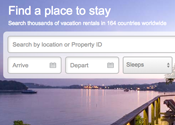Dorien gaat al een aantal jaren met haar vriendinnen op vakantie. De 9 meiden zoeken een vakantievilla, die van alle gemakken voorzien is. Vorig jaar verbleven ze voor de eerste keer in een huis, en dat is hen prima bevallen. Deze zomer willen ze naar Spanje.
Eind 2014 komen de meiden bij elkaar om het ideale huis te vinden. Na wat speurwerk op internet vinden ze een villa op verhuursite holidaylettings.com. De site oogt betrouwbaar. Er staan diverse foto’s online van Villa Bonita, gelegen op Gran Canaria.
Mailadres veranderd
De meiden nemen via de site contact op met de verhuurder. Ze informeren of het huis nog beschikbaar is wanneer ze graag op vakantie willen. En dat is zo. Zonder dat ze het in de gaten hebben, verandert het mailadres van de verhuurder. Ze mailen nu rechtstreeks en komen tot een boeking.
Reservering niet bekend
Ze storten het huurbedrag, 1800 euro, op de rekening van de echte verhuurder. Die kent de reservering echter niet, en stort het bedrag weer terug. En dan duikt de hacker weer op. De ‘eigenaresse’ geeft aan dat ze problemen met haar mail heeft, dat de boeking wel degelijk bekend is. Ze moeten het geld naar een andere rekening over maken. Deze bevindt zich in Oostenrijk. De verhuurder zal bij aankomst zorgen voor een transfer naar de villa. Alles lijkt geregeld voor de vakantie van de vriendenclub.
Twijfels
Na betaling heeft een van de meiden twijfels. Ze kijkt nog eens op de site van Holidaylettings. Ze ziet dat de villa nog steeds beschikbaar is in de periode waarin zij geboekt hebben. Ze neemt gelijk via de site contact op met de eigenaar van de villa om te navraag te doen. Hij geeft aan dat er geen boeking van de meiden bekend is bij hem. De meiden krijgen van de echte eigenaar te horen dat ze waarschijnlijk de dupe zijn geworden van een nepadvertentie of een hacker. De 9 vriendinnen zijn opgelicht bij het boeken van hun droomvakantie.
Blijf alert!
Oplichting komt op dergelijke verhuursites helaas vaker voor. Wees daarom alert als je een boeking doet via de site. Let op de volgende punten:
- Alle communicatie met de verhuurder moet lopen via de beveiligde site van Holidaylettings. Betaal ook via de site. Je bent dan verzekerd mocht er iets mis gaan.
- Mail nooit rechtstreeks met de eigenaar, ook al vraagt deze dat. Rechtstreeks mailen vergroot de kans dat je met een malafide persoon te maken krijgt. Geld dat je overgemaakt hebt, zie je dan helaas nooit meer terug.
- Neem bij twijfel altijd contact op met Holidaylettings. Zij kunnen nagaan of een boeking bekend is. Indien er sprake is van fraude, meld dit dan bij hun Trust&Safety team.
- Doe bij fraude altijd aangifte bij de politie. Dit kun je online doen via politie.nl
Holidaylettings onderzoekt wat er bij de meiden verkeerd is gegaan.
Update Holidayletting 15-07-2015
Holidayletting geeft de volgende verklaring op de vragen van Opgelicht?!
What happened in this case? How often do customers find they have not been dealing with the owner of the property but instead have been defrauded?
We were saddened and concerned to learn of Lieke’s experience with this holiday rental booking. After a thorough investigation by our Trust and Safety team, we have confirmed she was the victim of an email scam wholly unconnected to Holiday Lettings Our sites remain entirely safe and secure.
The type of fraud perpetrated in Lieke’s case is called phishing and it can affect all types of industries and any person or organisation with an email address. In this instance, a homeowner inadvertently gave their personal email login details to a fraudster. The fraudster was then able to log in to this person’s email account, intercept all communication (including emails sent from our site), email as the homeowner, and request payment from an unsuspecting traveller – in this case, Lieke.
Each year, hundreds of thousands of travellers safely and securely book their vacation rentals through Holiday Lettings. It’s exceedingly rare for our customers to encounter fraud and they can protect themselves from it entirely by paying through our protected payment platform. When a traveller pays through our site (rather than directly to the homeowner via bank or wire transfer), we protect their booking with Payment Protection. This safeguards the traveller’s payment against number of issues, and means their booking would be refunded in cases of fraud. Two-thirds of our properties can be booked with payment protection and are clearly identified by a large and prominent badge on their listing which looks like this:
The experience that Lieke had is extremely rare. We dedicate significant time and resource so that the overwhelming majority of travellers have positive experiences on our site and we’re very sorry that this wasn’t the case for Lieke.
In which way do you warn your customers? How do you inform them of the best way to book?
Information on protected payments and safe booking is prominently placed on just about every page of our site. We encourage travellers to use this to protect not just against this type of fraud, but to safeguard their bookings against a number of potential (but unlikely) issues. More than two-thirds of our properties are covered by Payment Protection.
If travellers choose to pay this way they have guaranteed protection and we encourage them to pay this way repeatedly with clear messaging around safe payment at every stage of the booking process.
Travellers will see safety and payment protection messaging throughout their entire experience with us – on the homepage, in their search results, on the property listings themselves and throughout their booking process. The messaging starts on the home page, with two clear places to find out about Payment Protection:
After this, the payment-protected properties are flagged up in the search results:
If the traveller clicks on a payment protected listing, they’ll see the Payment Protection badge prominently placed (alongside payment info):
If they click on ‘Check price and book’, they’ll then see this along the top of page
If the traveller inquires about a non payment-protected property, they’ve selected a property without a Payment Protection badge. Once they’ve contacted the homeowner/property manager, here is what they see:
They can then choose to click on the full ‘advice on booking safely, which links to the following page, also found through the ‘common questions’ section on our site. Here travellers can find information explaining when a property is covered, how they’ll know if it’s covered and more advice on how to pay safely.
Can you give us any tips that we can share with our audience?
Keeping our customers, their holiday and their money safe is our top priority and we dedicate significant time and resources to that end.
Most importantly, we offer Payment Protection, through which two-thirds of the 550,000 properties we list can be booked. This protection means a traveller will be refunded if they’re unable to access the property for any reason, including fraud. Payment protection is automatically applied to any property booked through our payment platform.
If a traveler chooses to book a property without payment protection, we recommend that they do the following:
- Ask for a booking contract so you know where you stand
- Make secure payments - steer clear of instant wire services
- Only make payments to the person named on the advert
- If you're worried about a payment just give the owner a call
- Pick up some local knowledge - ask the owner about check in/out times, directions and even tips about the area
Can you compensate?
More than two-thirds of properties come with Payment Protection. If a traveller with Payment Protection were to be impacted by fraud, their money would be refunded. We only protect payments which are made through our site.
Achtergrondinformatie
- Bekijk de uitzending over huisjesverhuur
- Ik wil een vakantiewoning huren via internet. Waar moet ik op letten?






